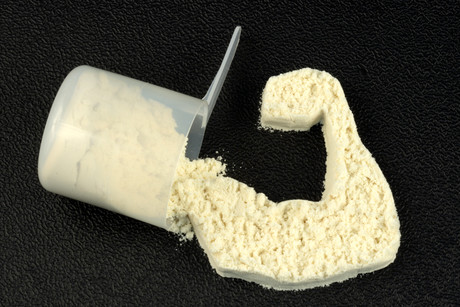Upcycling: how to transform waste products into valuable commodities

Turning waste products into superfoods can be very lucrative for food and beverage manufacturers and be a plus for the environment as well.
Sustainability and environmental management play an important role in the food industry. Nevertheless, regardless of how efficiently the machines work and how resource-friendly they are, at the end of the day the manufacturers are still faced with the question: What to do with the waste materials that are left over?
Innovative methods now exist that enable the recovery of materials from industrial by-products. This upcycling is being used by some food manufacturers to turn their waste products into valuable assets.
The upcycling of by-products that arise while processing vegetable- and animal-based raw materials is resource-friendly and ecological, as the biomass contains a multitude of substances that can be implemented as ingredients for new foodstuffs.
From waste material to a superfood
The classic example of upcycling is whey. Once a high-volume waste product from the production of cheese and cheese curd that was only considered as pig food, whey is now a ‘superfood’.
The main ingredient in many fitness products thanks to its protein, vitamin and mineral content, whey is also being added to drinks, puddings and smoothies. It is even being added as a demineralised concentrate in baby food.
Separating methods isolate the valuable components
Membrane separation and ultrafiltration plays a key role in isolating whey from the waste stream. Ultrafiltration allows the whey protein to be concentrated by up to 35%. In protein isolates up to 90%, the whey is freed from the fat by means of microfiltration.
Lactose and minerals like calcium and phosphorus can be recovered from the permeate flow of the protein isolation by means of nanofiltration or reverse osmosis. In this way, by cleverly combining dynamic filtration methods enriched products can be produced that contain the high-quality components in the desired concentration.
In addition to the membrane filtration method, separator technology has also established itself as a further upcycling method.
Lecithin, which occurs as a by-product when soya beans, sunflower seeds and rape seeds are processed, is used in the food industry as a natural alternative to synthetic emulsifiers and stabilisers. Here high-speed separators separate the lecithin and raw oil.
New ingredients from residues
Thanks to upcycling the offer of natural food additives is becoming more comprehensive, as one can see from the example of pectin. Pectin, a by-product generated during the production of apple juice, is used as a gelling agent, which is indispensable within the food industry.
Polyphenols are another by-product that can be recovered from the pressing residues in apple juice production. In future they may be used to add a further brown shade to the palette of natural colourants for food. Currently a project supported by the Federal Ministry for Economic Affairs and Energy aims to develop a large-scale technical process that uses the waste products left over after making juices as an alternative for caramel colouring.
Focus on resource efficiency
Recycling and upcycling are now firmly established in the industrial environment of food production. The latest technology and equipment for this can be seen at Anuga FoodTec in Cologne (20–23 March 2018). The opening conference ‘Resource efficiency — challenges and opportunities’ on 20 March plus the additional expert forum on 22 March will be dedicated to the theme of upcycling and the use of by-products.
Pork producer cuts emissions with onsite sludge treatment
A UK pork producer wanted to reduce sludge transport costs at its processing plant, which...
Bega upgrades wastewater aeration system
Bega has upgraded the wastewater aeration system at its Strathmerton plant, following...
Cracker company selected for net zero pilot
Food South Australia and Siemens have selected Tucker's Natural to run a pilot of Sigreen, an...












